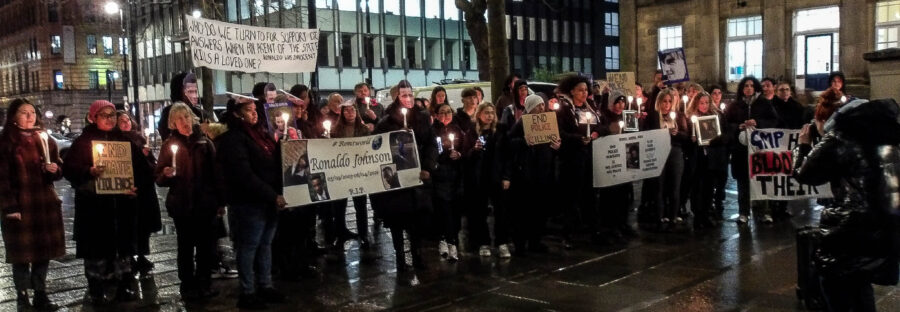No justice no peace: families and campaigners call for an end to ‘unnecessary’ police pursuits by GMP
- Northern Police Monitoring Project says working class and ethnic minority young people disproportionately involved in fatal police pursuits
- Families are calling for an end to police chases in vehicles
- Relatives say they are being denied closure around deaths of loved ones
Grieving families in Manchester are calling for an end to “unnecessary” police chases which end in the deaths of young people.
They claim police disproportionally target working class people from ethnic minority backgrounds in police pursuits on the streets of Manchester.
Figures from the Independent Office for Police Conduct (IOPC) show there were three deaths involving police vehicles between April and December 2023, as well as four incidents of serious injury. They also reveal that complaints of ‘racist conduct’ made up 55% of all discrimination allegations during that time.
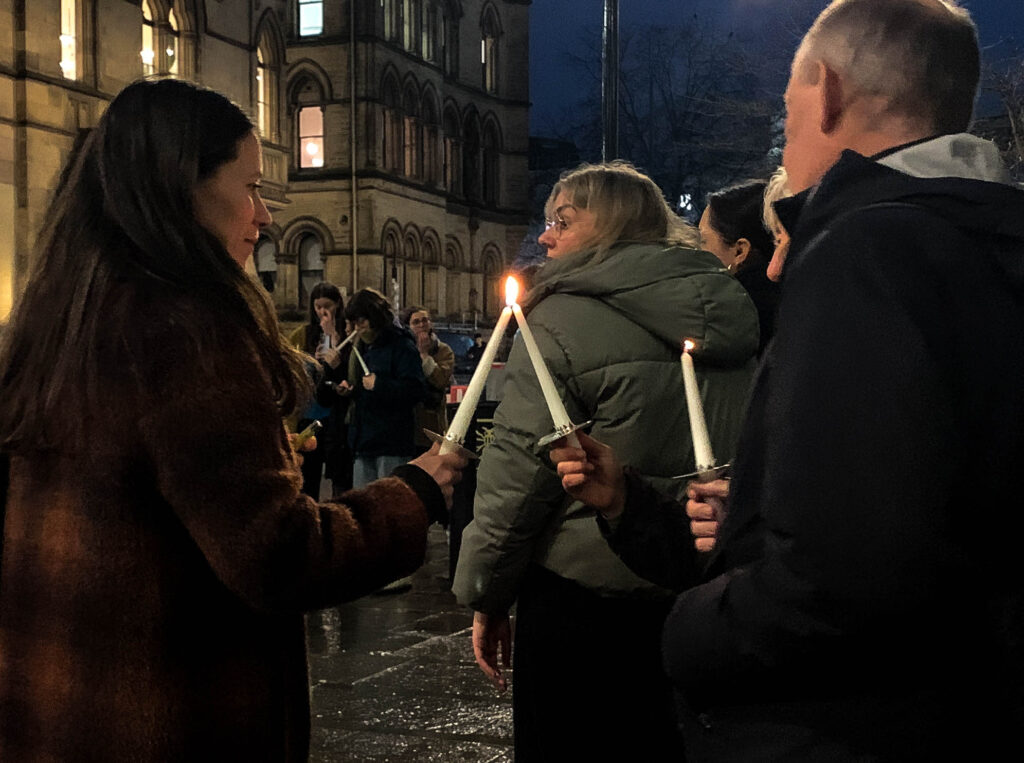
An inquest held into the death of Ronaldo Johnson, a 17-year-old passenger who died in a car crash following a police pursuit, determined that he had been unlawfully killed as a result of a road traffic collision.
The inquest was held just days before the three-year anniversary of his death on 31 March, 2021. It was attended by Ronaldo’s family and representatives from the Northern Police Monitoring Project.
Weeks before, the group held a candlelit vigil in Manchester to highlight the dangers of police pursuits involving non-violent offences and minor traffic violations.
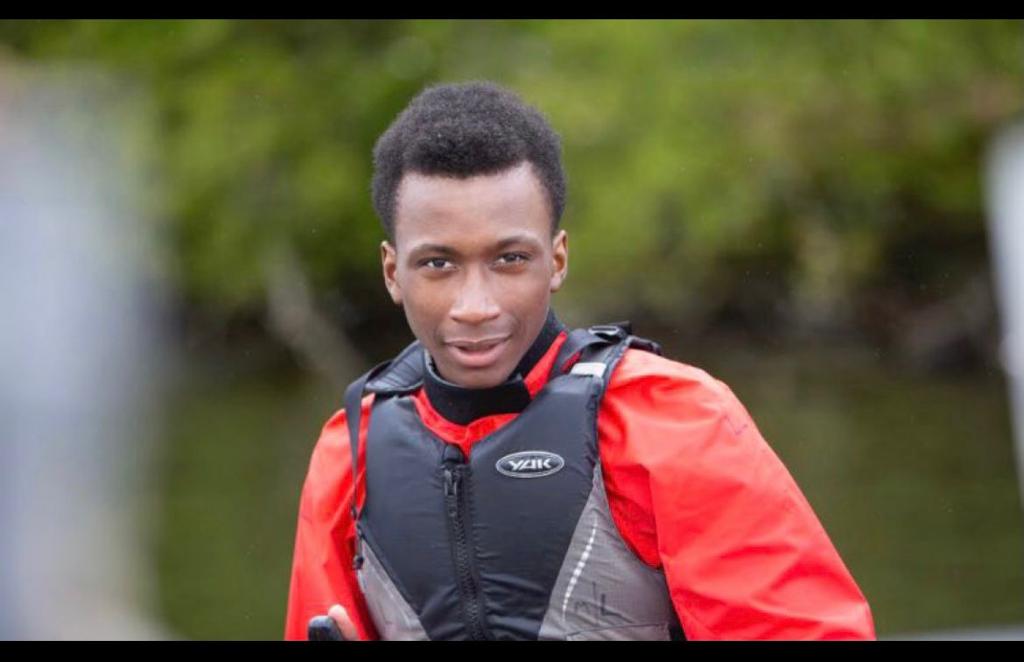
Alongside Ronaldo, the vigil shone the spotlight on the deaths of two other young people involving the GMP: one involving an alleged minor traffic offence; and the other after being pursued the wrong way down the M60.
The group is calling for greater scrutiny of police by the Independent Office for Police Conduct (IOPC) in what they call ‘risky’ high speed chases, claiming that officers are not being held to account for fatal pursuits.
‘The aftermath is the worst thing’
In their demands for justice, families say they have faced obstacles in the way of delayed proceedings, withheld information, and bureaucratic hold-ups which have prolonged their grief and denied them closure.
Speaking at the vigil, Ronaldo’s older sister Keshia said: “You’d think that’s the worst thing that could happen to you, having a loved one taken from you. But actually the aftermath is the worst thing, because the [things] that happen afterwards is something you could never imagine.
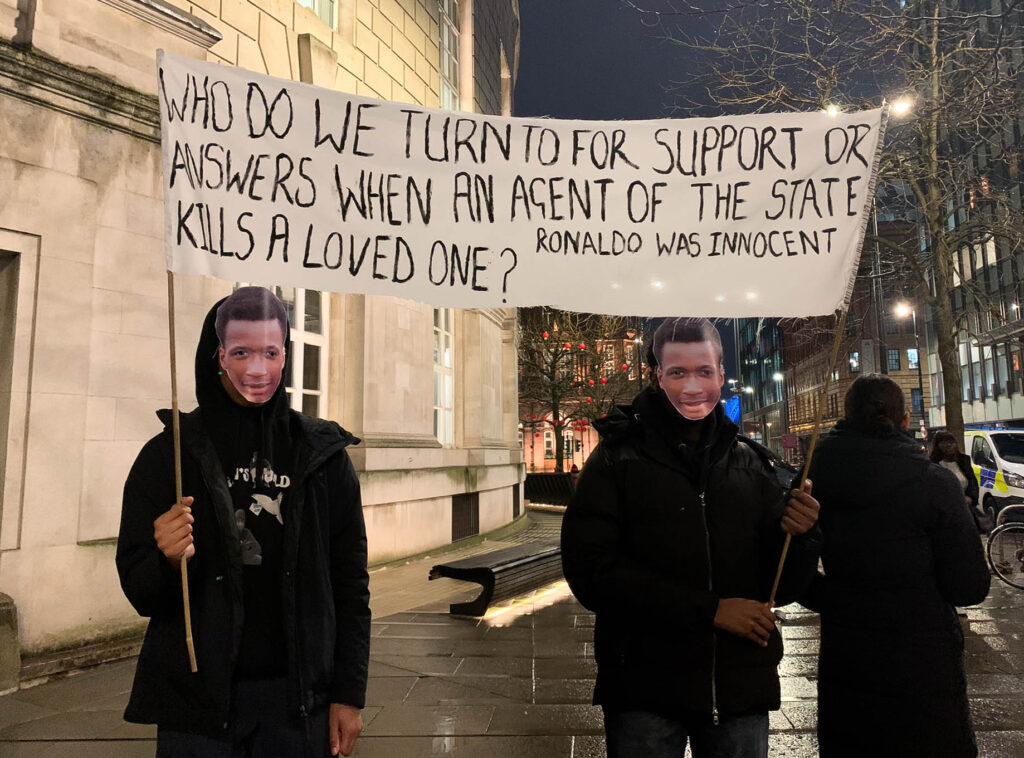
“If it wasn’t for the crash, Ronaldo would still be here. Justice is supposed to be blind, she’s got a scarf around her face and she’s holding the scales. But the system is not balanced: if you don’t have money, if you don’t look a certain way, then you’re not going to get justice.”
Solicitor Emma Gilbert, who also attended Ronaldo’s inquest, said deaths resulting from non-violent police offences “have simply got to stop”.
“The risk involved in these often shockingly high-speed and lengthy pursuits frankly warrants more careful scrutiny than is afforded in the system in England and Wales today,” she said.
“Among its most concerning features is the utterly disproportionate reasons behind police pursuits when compared with the devastating harm and often loss of life seen from such pursuits.”
‘Solidarity is what love looks like in public’
The vigil was followed by a meeting in which NPMP representatives Zara Manoehoetoe, Kerry Pimblott, and Siobhan O’Neill outlined the context and key demands of the #EndPolicePursuits campaign.
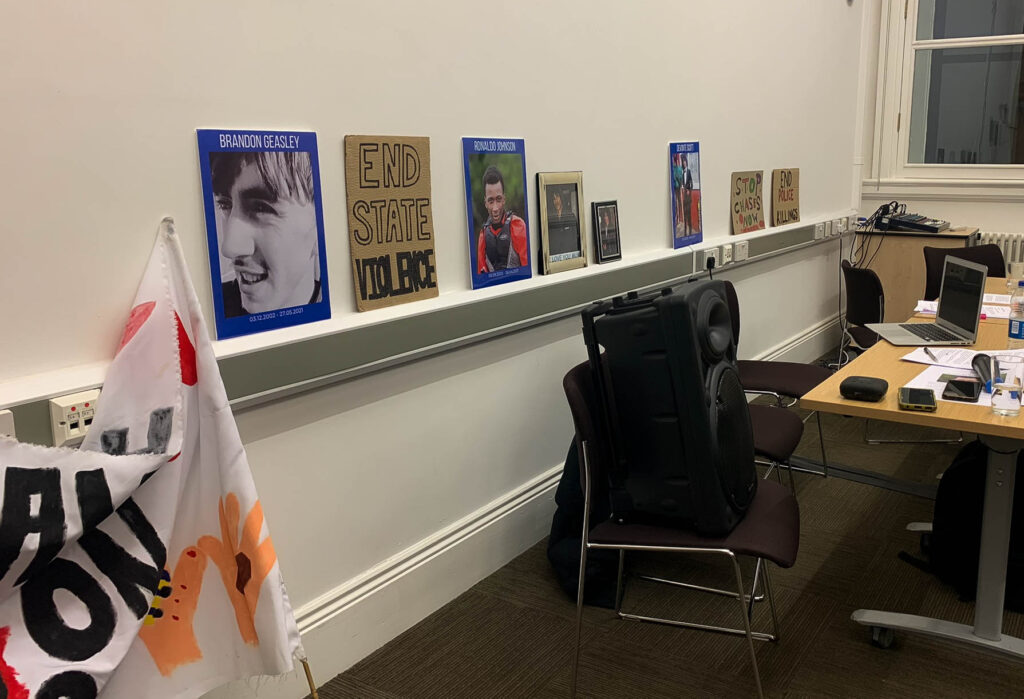
O’Neill said: “We hope that they will actually enact some change and push people in power not to just acknowledge that this is an issue, but to make tangible changes. We can’t lose another person in our community.”
Manoehoetoe added: “In this room you can feel a collective emotion that we are holding together. We are not only grieving together, we’re remembering, we’re honouring, and we are doing that fuelled by experience and emotions. And that’s something the state don’t have.
‘We are taking action in this room’
“They do not experience what we experience, they do not risk what we risk. Their safety is not threatened in the way our safety is threatened. They do not experience the emotions that we feel. Especially for our working class, for our racialised community, this oppression is violence, and it continues in cycles and cycles.
“A campaign is nothing if the demands are written on paper and left there. A campaign is nothing if we don’t have people standing in solidarity. Solidarity is what love looks like in public. We are taking action in this room by bearing witness. Bearing witness is an action that we do, bearing witness and not looking away and making a record of these things is an action.”
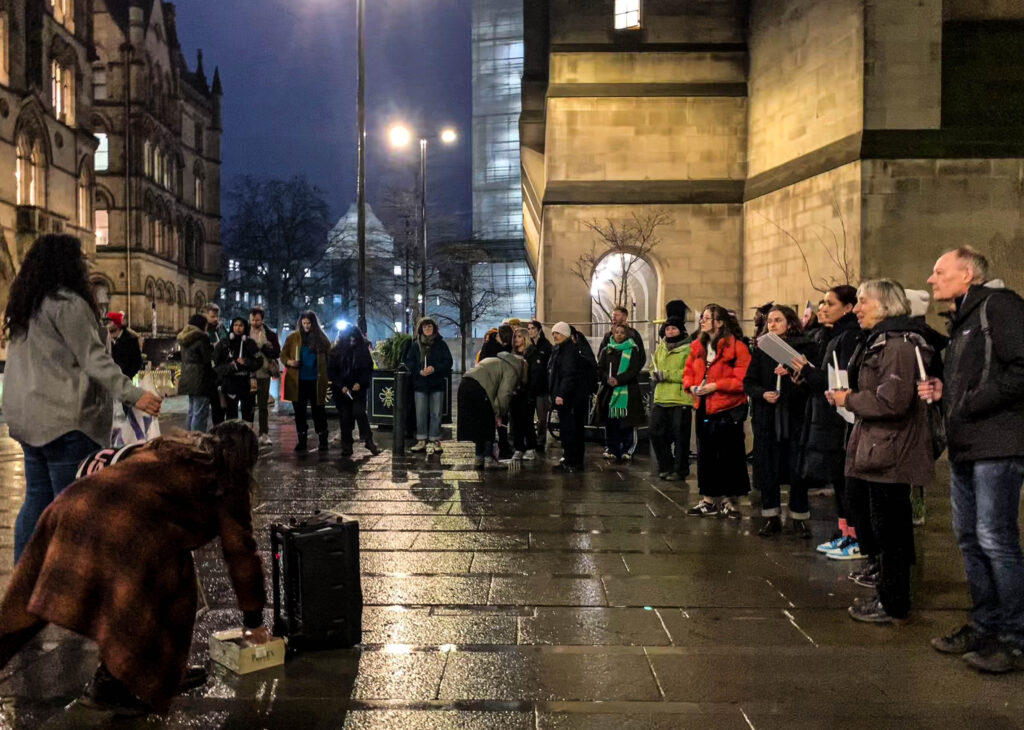
Speaking to NQ, she said: “I think a lot of people worry about getting involved in things, because they might not know what they’re doing or they’ve not got any experience, but that was all of us at one point.
“There are individual journeys that we will take and experiences we can share, and there’s something beautiful about joining together and having each other to do this work. It is work. And while some of it is really hard, there is a lot of joy and a lot of beauty and love that comes out of it.
“I’m very hopeful, I’m always hopeful. I do believe that one day, moving forward, we will achieve a society that is free from police harm, I really do.
“In my day job I’m a youth worker, so I see the violence from the state on so many levels, in my personal life and at work and in activism.
“I do it for the kids that are in this room right now today, and the families that have lost loved ones, and the kids that are at home in my family and the ones that I work with.”
GMP have been approached for a response.


